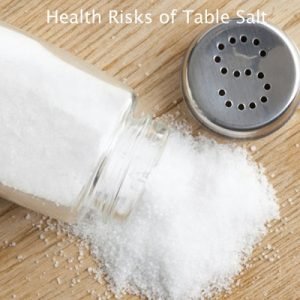Salt. It’s a staple in our kitchens, a flavor enhancer that makes food sing. But what happens when the music gets a little too loud? Consuming too much salt can have a surprisingly negative impact on our health. In this article, we’ll explore the eight most common side effects of eating too much salt, along with some practical tips to help you keep your sodium intake in check.
Understanding Salt and Its Role
Salt, composed mainly of sodium chloride, is vital for maintaining fluid balance and nerve function. Yet, its overconsumption is a growing concern. The World Health Organization (WHO) recommends less than 2000 mg/day of sodium, but global intake averages at 4310 mg/day, more than double the advised amount.

8 Common Side Effects of Eating Too Much Salt
Excessive salt intake can have various detrimental effects on health, including:
- Hypertension and Cardiovascular Complications: High salt diets are strongly linked to hypertension, a leading cause of cardiovascular diseases1. Sodium’s ability to increase blood volume results in elevated blood pressure, straining the heart and arteries, potentially leading to heart attacks or strokes.
- Stomach Cancer Risks: Salt-rich diets may increase the risk of stomach cancer by promoting the growth of certain bacteria, such as Helicobacter pylori, which can lead to inflammation and, subsequently, cancer.
- Weight Gain and Obesity: Research indicates a correlation between high salt intake and increased body fat, contributing to obesity in both children and adults. The FDA has highlighted sodium as a significant factor in the rising obesity rates.
- Kidney Function Impairment: Excess salt can impair kidney function by causing water retention and high blood pressure, leading to kidney stones and other renal issues.
- Osteoporosis: High sodium intake can lead to calcium loss, weakening bones, and increasing the risk of osteoporosis, particularly in the hips and spine.
- Cognitive Decline: There’s evidence that too much salt can affect cognitive functions, potentially leading to conditions like dementia by impacting cerebral blood flow.
- Mineral Imbalance: Excessive salt can deplete essential minerals like calcium, potassium, and magnesium, disrupting the body’s mineral balance and contributing to cardiovascular diseases.
- Meniere’s Disease: A high salt diet may exacerbate Meniere’s disease, a condition characterized by hearing loss and vertigo, due to its effect on fluid retention in the inner ear.
The Path to Moderation
Understanding the side effects of excessive salt intake is the first step toward a healthier lifestyle. By choosing natural, unprocessed foods and being mindful of salt content, we can enjoy the benefits of salt without compromising our health. Let me know if you have any other questions!
